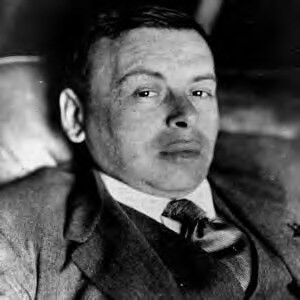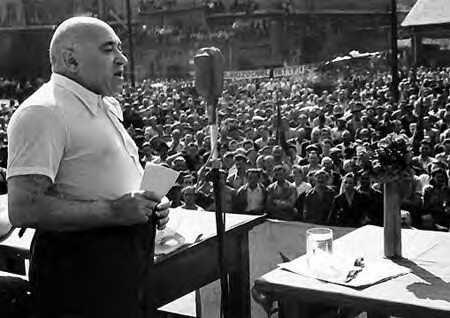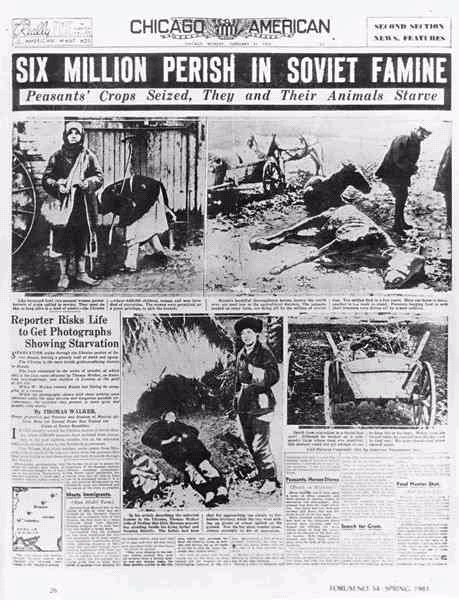The Occidental Observer |
| A Review of "Capitalism and the Jews" by Jerry Z. Muller, Part 4 Posted: 14 Jul 2011 09:41 PM PDT The case of Hungary Muller cites a prominent case study – that of Hungary – that would seem to disprove the thesis that Jews embraced communism most enthusiastically where their economic circumstances were poorest. Nowhere was the economic and social ascent of Jews as rapid as in Hungary in the half-century before World War I. As Muller notes: 'The prominence of Jews in [Bela Kun's short-lived] Hungarian Soviet Republic [of 1919] is all the more striking when one considers that the Jews of Hungary were richer than their coreligionists in eastern Europe and remarkably successfully in attaining positions of status.' Furthermore, 'Though only 5 percent of the population, on the eve of World War I Jews made up almost half the doctors, lawyers, and journalists in Hungary' (p. 154). Muller vividly describes the vast extent of Jewish involvement of in Communist regimes in Hungary both prior to and after World War Two, starting with the Hungarian Soviet Republic of Bela Kun (Cohen) who seized power in March 1919 and lasted for only 133 days before succumbing to invading Romanian troops. Muller notes that of the government's forty-nine commissars, thirty-one were of Jewish origin. Despite their relative economic success, the 'secularized Jewish intelligentsia of Hungary was naturally attracted to the ideology of radical internationalist socialism, which promised a political community based on universalism rather than on religious or national particularism' (p. 155). To rephrase this in terms of the group evolutionary strategy idea, they were especially attracted to an ideology that would transform the economic and political basis of society, destroy traditional religious institutions seen as anti-Jewish, and would also be consistent with their own power and with the continuity of Jewish group cohesion. When they seized power in 1919 these Jewish revolutionaries acted in enthusiastic accord with their radical political principles:
An eyewitness account of the Hungarian Soviet Republic was published in 1921 by the visiting French brothers Jean and Jérôme Tharaud entitled Quand Israël est roi (When Israel is King). Muller points out that: 'Interspersed with accounts of the confiscation of wealth by the revolutionaries and the replacement of Christian professors by young Jewish intellectuals were reflections such as this: "A New Jerusalem was growing up on the banks of the Danube. It emanated from Karl Marx's Jewish brain, and was built by Jews upon a foundation of very ancient ideas"' (p. 160). In 1933 the Tharaud brothers would entitle their new book on Hitler's new regime Quand Israël n'est plus roi (When Israel is No Longer King). After World War II, Hungary again offered an extreme example of the overrepresentation of Jews in the new Communist government brought to power by the Red Army. In Muller's view, 'the utilization of Jews in prominent positions was, to use an apposite phrase, "no accident." In the newly conquered nations of eastern and central Europe, the Soviets had few reliable supporters. Suspicion of Russian imperialism was old and well-founded, and anti-Communism almost a national religion' (p. 170). Jews were among the very few natives the Soviets could trust to carry out their plans. Muller notes that 'because they were familiar with local conditions and fanatically antifascist, Jews were often chosen for the security police [see here, p. 60ff for a similar account in post-WWII Poland]. Because of their high level of education, they were particularly active in the fields of propaganda and education' (p. 171). Note that Muller casually conflates fascism with nationalism. Throughout post-WWII Eastern Europe patriotic nationalist forces were brutally suppressed by the communist government, as in Poland (see above link). The Jews who aided the communist regimes were therefore engaged not in anti-fascism but in actions opposed to the traditional peoples and culture of these societies, while typically maintaining their own ethnic commitments. A classic example was Markus Wolf who was 'active at first in the propaganda apparatus of the [East German] regime,' and who later headed the East German military espionage service (the Stasi) until 1987. Muller also speculates that Stalin's motive for installing so many Jewish leaders to enforce Soviet rule in conquered eastern Europe was that communists of Jewish origin seemed the least likely to form an alliance with the local populace against the hegemony of the Soviets, as Tito had done in Yugoslavia—an acknowledgement that Jews were indeed were more willing to engage in actions opposed to the traditional peoples and culture of these societies. Muller observes that 'nowhere were Jews more prominent in the Sovietization of the nation' than in Hungary, where 'the key post of general secretary was once again occupied by a Jew, Mátyás Rákosi' who billed himself as 'Stalin's best pupil' (p. 173). The next five major positions were filled by Jews like Ernö Gerö (Singer) who became minister of state; Mihály Farkas (Wolf) who became minister of defense; József Révai who became the party's chief ideologist and minister of culture; Gábor Péter (born Benö Auspitz) became head of the Hungarian political police; while control of the Hungarian economy went to another Jew, Zoltán Vas (Weinberger). Muller estimates that 30 percent or more of higher police officials were Jewish, and 'many departments of the security apparatus were headed by Jews.' Many of these Jews had spent years, even decades, in the Soviet Union, while others 'had returned from concentration camps or … [had] survived the war in Budapest.' These Jews regarded the Soviets as their liberators and nursed 'a burning desire for vengeance against the Hungarians' who had collaborated with the Nazis. 'By moving into the army, the police, and the security apparatus,' he notes, 'these young Jewish survivors put themselves in a position to settle accounts with the men of the Arrow Cross' (p. 175). It was hardly surprising in such an environment that anti-Semitic riots broke out in 1946. The oppressive nature of the new regime can be gauged by the fact that between 1952 and 1955 'the police opened files on over a million Hungarians, 45 percent of whom were penalized,' and Muller concedes that 'Jews were very salient in the apparatus of repression' (pp. 178–179). It has not gone unnoticed that, despite the evidence for very large Jewish involvement in communist crimes, 'there are no apologies from Jewish organizations and very few mea culpas from Jewish intellectuals' (see here, p. 40). At the end of his chapter on the Jews and radical anti-Capitalism, Muller offers a partial, cautiously framed semi-apology by claiming that 'Communists of Jewish origin, no less than their non-Jewish counterparts, were led by their anti-capitalist ideals to participate in disastrous policies and to take part in heinous crimes against Jews and non-Jews alike.' He particularly laments that 'the conspicuous role played by Jews in the Communist movement, though rarely the primary cause of anti-Jewish sentiment, fanned the flames of anti-Semitism' (p. 188). We are thus led to conclude that while Jews may have been prominent as perpetrators of the crimes of communist regimes, they were, together with non-Jews, the equally prominent victims of these crimes. There is a fundamental dishonesty in this position, in that Jews were most certainly not the victims of communist oppression to anywhere near the extent that the non-Jewish groups were and, proportionately, were represented among the agents of this oppression to a vastly greater degree than any non-Jewish group. The reality is that, rather than its victims, Jews were instrumental in the rise to power of many brutal communist regimes, and were deeply involved in the murderous reign of terror unleashed by these regimes; and as financiers, apologists and spies for the Soviet Union in the West. This simple truth is something that Muller, ultimately, is not willing to concede. Jewish capitalism and anti-capitalism in the United States The other prominent example that refutes the thesis that Jews became more radicalized where their economic and social disadvantage was greatest is the United States. While the communists never came to power in the United States, Muller notes that:
Kevin MacDonald points out that in the United States the Jewish embrace of radical political ideology 'became disassociated from the usual demographic variables not long after arrival.' This was because 'American Jews had far less reason than other ethnic groups to wish for an overthrow of capitalism because they tended to be relatively economically privileged.' A prime example of this was the fact that the New Left radical students of the 1960s came disproportionately from highly educated and affluent families. The only viable explanation for this phenomenon lies in social identity theory which would predict that Jews would embrace an ideology that entailed a negative evaluation of the non-Jewish outgroup cultural norms and power structure. As MacDonald notes, 'Social identity processes and their influence on perception of ethnic (group) interests rather than economic self-interest appears to be paramount here' (see here, p. 83). The falls of Nazism and Communism have, Muller observes, not dispelled the centuries-old nexus between the image of the Jew and the evaluation of capitalism. He detects their twenty-first century echoes 'in the rhetoric of accusation against the World Bank and the International Monetary Fund.' Moreover, he notes that 'since the end of Communism, the condemnation of capitalism, Jewry, and the United States have frequently been blended together, with the shadow of usury and the specter of the Jews now cast over the United States' (p. 71). This is hardly surprising given that it is estimated that around fifty percent of Wall Street executives are Jewish, the prominent role of Jews in financial de-regulation that underlies the current crisis, the Jewish domination of the Federal Reserve System and the economic departments of the US Government. The global financial crisis, its causation, and the subsequent recession that has gripped many parts of the West have, once again, highlighted the relationship between capitalism and the Jews. The Jewish financial elite (whose speculative activities were allowed to expand for two decades at the expense of the productive sectors of the economy) behaved more like an organized criminal gang than an elite with a sense of civic responsibility and commitment to the long term viability of the societies in which they dwell. This is not surprising given the history of diasporic Jews thinking of themselves as outsiders, alienated from the societies around them—a hostile elite with a potent sense of historical grievance. For American Jewry, forever fixated on the aggressive pursuit of their individual and group interests, the viability of their host society has always been a lesser concern. |
| You are subscribed to email updates from The Occidental Observer To stop receiving these emails, you may unsubscribe now. | Email delivery powered by Google |
| Google Inc., 20 West Kinzie, Chicago IL USA 60610 | |





No comments:
Post a Comment